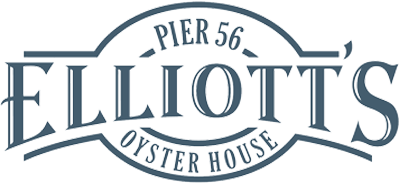The restaurant industry has evolved considerably in recent years as we’ve adapted to numerous legislative mandates at the federal, state and local levels as well as challenges brought on by the pandemic. For E3 Restaurant Group, this evolution has been particularly impactful on the practice of tipping and how we compensate our teams; a matter that can be sensitive given the impact this has on both our teams and our guests. It’s a matter we take very seriously.
Following are answers to frequently asked questions we’ve received from our guests. Our goal is to inform you of what we’re doing and why, to provide clarity and address any misunderstandings that might exist. We thank you for taking the time to learn more about what we’re doing and encourage you to contact us if we have not answered your questions and/or satisfied your concerns.
What are the primary changes E3 Restaurant Group has made regarding tipping and compensation?
- A 20% Service Charge is now added to each guest check. This Service Charge is retained 100% by the company and is in lieu of guests being expected to leave a tip.
- Commissions on all food & beverage sales are paid to our teams as part of their compensation.
Do I need to leave a tip? No. While our credit card receipts provide a line titled “Tip” for guests to leave a tip, there is no expectation to do so. Any tips for exceptional service are very much appreciated and 100% of your generosity will be retained by your server.
How is my server paid? Our servers are paid a base hourly wage, a commission as a percentage of every guest check and they retain 100% of any tip left by our guests. The average hourly compensation our teams make including base hourly wage, commissions and tips are included below. In addition to their base hourly wage, commissions and tips, those team members who are eligible receive benefits, including healthcare and PTO at or above industry averages.
- Servers: $35 – $60 / per hour
- Bartenders: $38 – $42 / per hour
- Cocktail Servers: $35 – $60 / per hour
How are the other team members paid? We consider it appropriate to provide our guests with some idea of what our team members make on an hourly basis and have provided some information below. Please know the rates indicated below include base hourly rates, commissions, tips and are averages for each position. In addition to their base hourly wage and commissions those team members who are eligible receive benefits, including healthcare and PTO at or above industry averages.
- Server Assistants: $25 – $30 / per hour
- Expeditors: $25 / per hour
- Front Desk Hostess: $20 – $25 / per hour
- Lead kitchen crew: $27 – $30/ per hour
- Kitchen crew: $21 – $27 / per hour
Is the Service Charge mandatory? No. While the service charge is automatically added to each guest check, if a guest feels the dining experience does not warrant the 20% service charge, we will reduce or eliminate the service charge upon request.
Why did you choose a commission model? An excellent dining experience, including service and cuisine, is delivered by a team – not just one individual. In the traditional tipping model, servers did not retain the full tip, but were instead expected to divide the tip amount among bar and support staff including server assistants, bar staff, wine captains, expeditors, hosts and in some cases, the kitchen team. This system often resulted in an uneven, unpredictable and, at times, inequitable distribution. The commission model provides a more reliable and predictable level of compensation for our teams. Additionally, we have heard from some of our guests who feel the service charge model has made the tipping decision simpler and easier.
How does the service charge model impact the company bottom line? The service charge revenue goes into our general funds and is used to help offset a variety of costs and expenses, much like our revenue from food and beverage. Because it is an undifferentiated part of our general funds, it’s difficult to specifically align the 20% “in” with a corresponding 20% “out”. We can say however that even though the service charge itself is not paid out to our employees, it does ultimately better enable us to provide our teams with industry leading compensation. In short, the intent of this model is not to enrich the company financially through retention of Service Charge revenue.
Why is sales tax calculated on top of the service charge? Under Washington State law, employers are required to pay retail sales tax on service charges.

